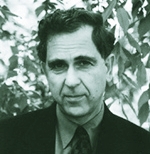
I plan to have more to say about the legacy of Arthur Schlesinger, Jr., but just a note about some of the commentary that has appeared in the week since his death at the age of 89.
In today’s New York Times, Sam Tanenhaus hails Schlesinger as the “last great public historian.” Like Russell Jacoby’s 1987 lament The Last Intellectuals, such praise of a departed generation implicitly disparages those who now practice the craft. I didn’t agree with Jacoby then, and 20 years later I don’t accept what Tanenhaus says. The public intellectual and public historian are not figures who have disappeared from our midst.
Schlesinger’s death takes from us a man with singular gifts, but he left us a gift too—his example. As E.J. Dionne writes in the Washington Post, it is a mistake to think that Schlesinger’s liberalism is being buried with him. And it is a mistake to believe that the seats that he and other historians ably filled in the public arena lie vacant.
Tanenhaus mentions two others besides Schlesinger—Richard Hofstadter and C. Vann Woodward—who qualified as great public historians. All three were important in defining the liberalism of the post-World War II era, though neither Hofstadter nor Woodward came close to matching Schlesinger in political prominence or sheer output.
If we take Hofstadter and Woodward as reasonable standards of comparison, I don’t think we lack for public historians who measure up to those of the mid-twentieth century. By public historians, I mean historians who engage the great public issues of their time and write about the past for the general public with authority and literary skill. Alan Brinkley, Sean Wilentz, and Garry Wills do this today, and there are others.
We no longer have Arthur Schlesinger, but the work goes on, not least of all because he showed us how to do it.
Paul Starr
Labels: American politics



0 Comments:
Post a Comment
Links to this post:
Create a Link
<< Home